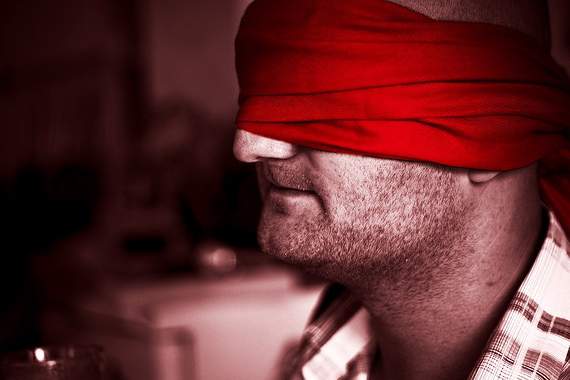
At any given time, tens of thousands of U.S. inmates are held in solitary confinement where they are allowed only occasional contact with guards.
Sometimes in military detention facilities, for example wardens go one step further, actively disrupting prisoners' visual, aural and tactile experience.
To many, such measures may not sound cruel or unusual, especially if the prisoner is a convicted violent criminal or is believed to possess information concerning national security threats. Yet studies show sensory deprivation, like physical torture, can have profound effects on cognitive functioning.
1,307 Days: A Case Study in Extreme Solitude
In 2002, an American citizen named José Padilla was arrested over suspected involvement in a plot to deploy a ‘dirty bomb', a relatively low-tech device whose blast distributes radioactive material.Â
After being deemed an enemy combatant, Padilla was promptly transferred to a military brig where he would spend over three years in a 9' x 7' isolation cell.
Windows were covered to block outside light, the mattress removed from his bed, and there was no clock to help the detainee keep track of time.
For the first two years, Padilla wasn't allowed contact even with legal representation much less family members, outside mental health experts or the news media.
When civilian forensic psychologist, Dr. Patricia Zapf, was finally allowed to evaluate Padilla in 2006, her official report described a man plagued by facial ticks, attention deficits, trouble remembering his years in confinement, and clear signs of post-traumatic stress disorder.
What Happened?
From the sunshine and birdsong that wake us in the morning to the odors and flavors we encounter throughout the day, normal life is characterized by a barrage of external stimuli.
Not only do sensory inputs keep us from getting bored, they also keep our brains functioning within healthy parameters. Should we lose access to natural light, social interaction and physical touch, we quickly begin to unravel.
Indeed, research shows that even 15 minutes of near-total sensory deprivation can cause hallucinations on par with psychedelic drugs.
A 2008 BBC documentary, Total Isolation, tracked the experiences of six people who volunteered to participate in a deprivation study that required them to be locked in complete darkness for 48 hours.
The results were startling. Individuals paced neurotically in their cells, and some reported visions of oysters, zebras and tiny cars. Psychological tests administered before and after the ordeal demonstrated significant declines in subjects' intellectual faculties on the one hand, and increases in suggestibility on the other.
In light of these results, it's hardly surprising that inmates subjected to similar conditions for months or years should manifest severe mental impairment.
Too much of nothing can be a very scary thing.
Read More:
- Forensic Evaluation Report (2006) – José Padilla (Wikisource)
- The Psychotomimetic Effects of Short-Term Sensory Deprivation (University College London)
- US Gov't Broke Padilla through Intense Isolation, Experts Say (The Christian Science Monitor)
- Court Says Jose Padilla Terrorism Sentence Too Lenient (Los Angeles Times)
- Enduring Solitary Confinement (ABC News)









